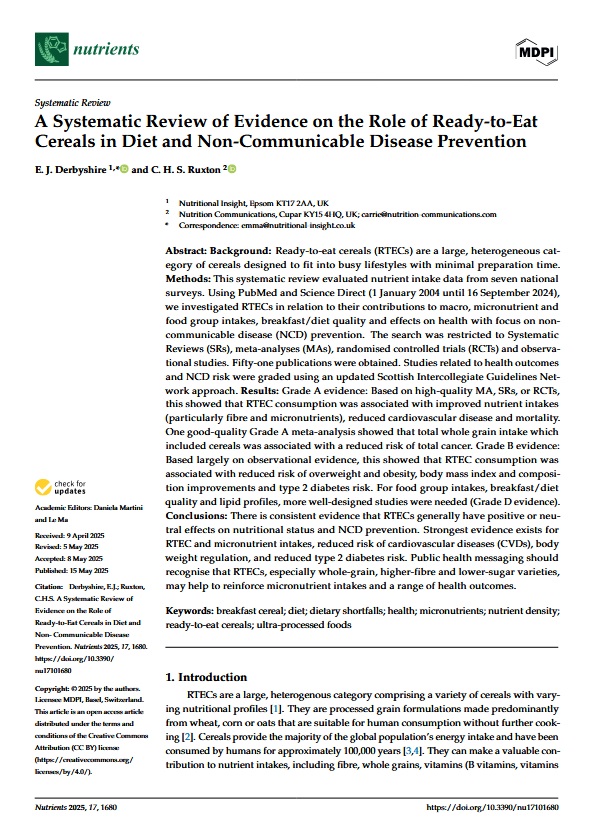Brussels, 3 June 2025 – In celebration of World Breakfast Day, a new systematic review has reinforced the evidence supporting the nutrition and health benefits of breakfast cereals. This comprehensive analysis shines a light on the positive role that breakfast cereals can play as part of a balanced diet.
The ‘Systematic Review of Evidence on the Role of Ready-to-Eat Cereals in Diet and Non-Communicable Disease Prevention’, published in the most recent issue of Nutrients, demonstrates that breakfast cereal consumption – especially whole grain and higher-fibre varieties – is associated with improved nutritional intakes, a lower risk of cardiovascular disease and type 2 diabetes in adults, as well as a reduced risk of overweight and obesity across all age groups, including children, adolescents, and adults.

The data indicates that regular consumption of breakfast cereals is linked to a 22% lower risk of type 2 diabetes and reduced obesity risk, a 10% lower risk of coronary heart disease and an 8% reduction in cardiovascular disease. Whole grain and higher-fibre cereals offer even greater benefits, with risk reductions of 28% for coronary heart disease and 26% for cardiovascular disease.
CEEREAL President Ece Nevra Durukan added: “This review highlights the significance of breakfast cereals in enhancing micronutrient intake and fostering improved health outcomes. The breakfast cereal industry takes pride in making a positive impact on public health and remains dedicated to ongoing enhancements to meet the evolving needs of consumers. Since 2015, CEEREAL members have increased whole grain content by 38.6%, increased fibre levels by 12.3%, and decreased sugar content by 9% through voluntary reformulation efforts. We urge policymakers to acknowledge the contribution of breakfast cereals to public health nutrition strategies in order to effectively combat nutrient deficiencies and prevent non-communicable diseases throughout Europe.”
As the EU advances its efforts to improve diet quality and reduce the burden of non-communicable diseases (NCDs), this evidence highlights the role of breakfast cereals as a practical, scalable and effective element within public health nutrition strategies.